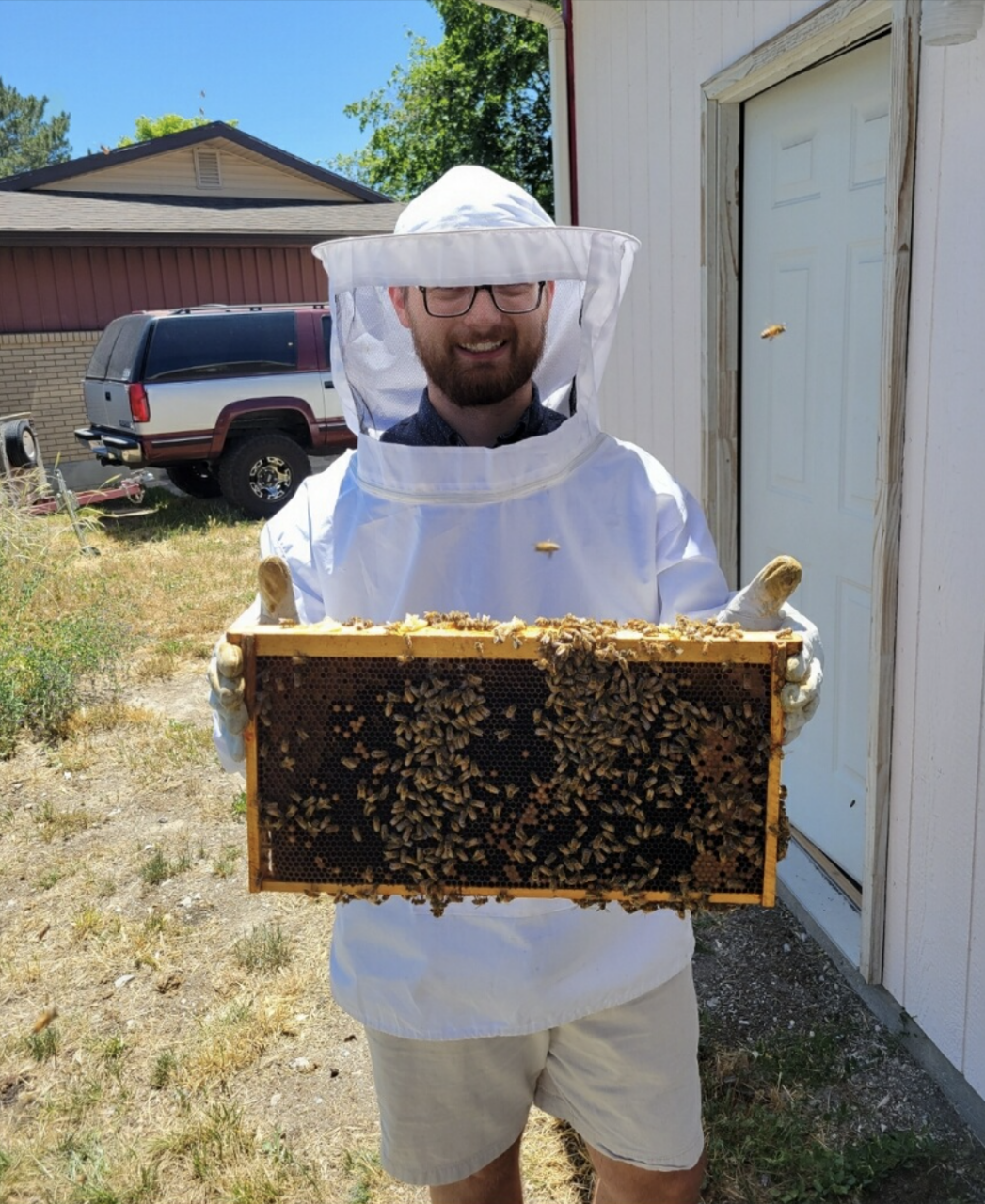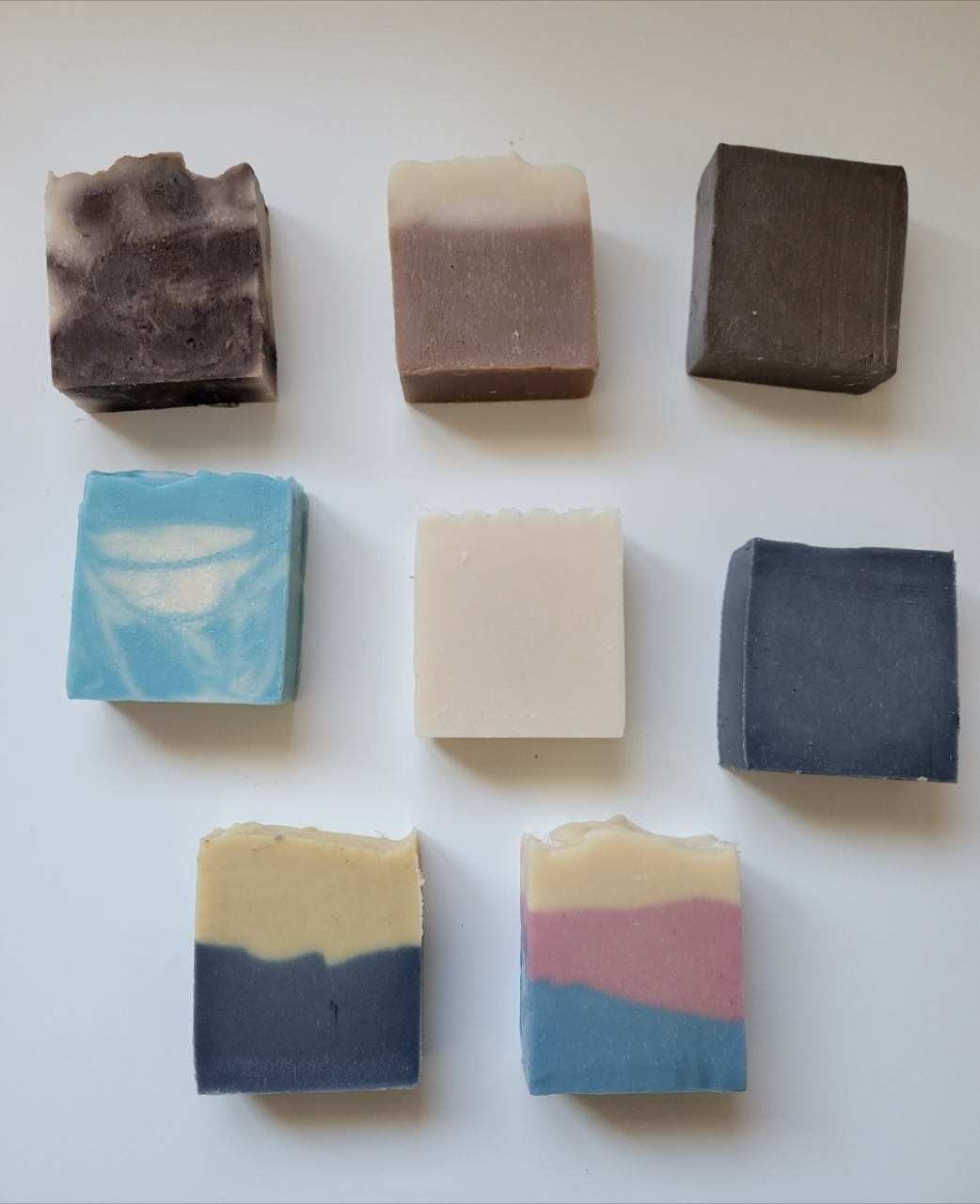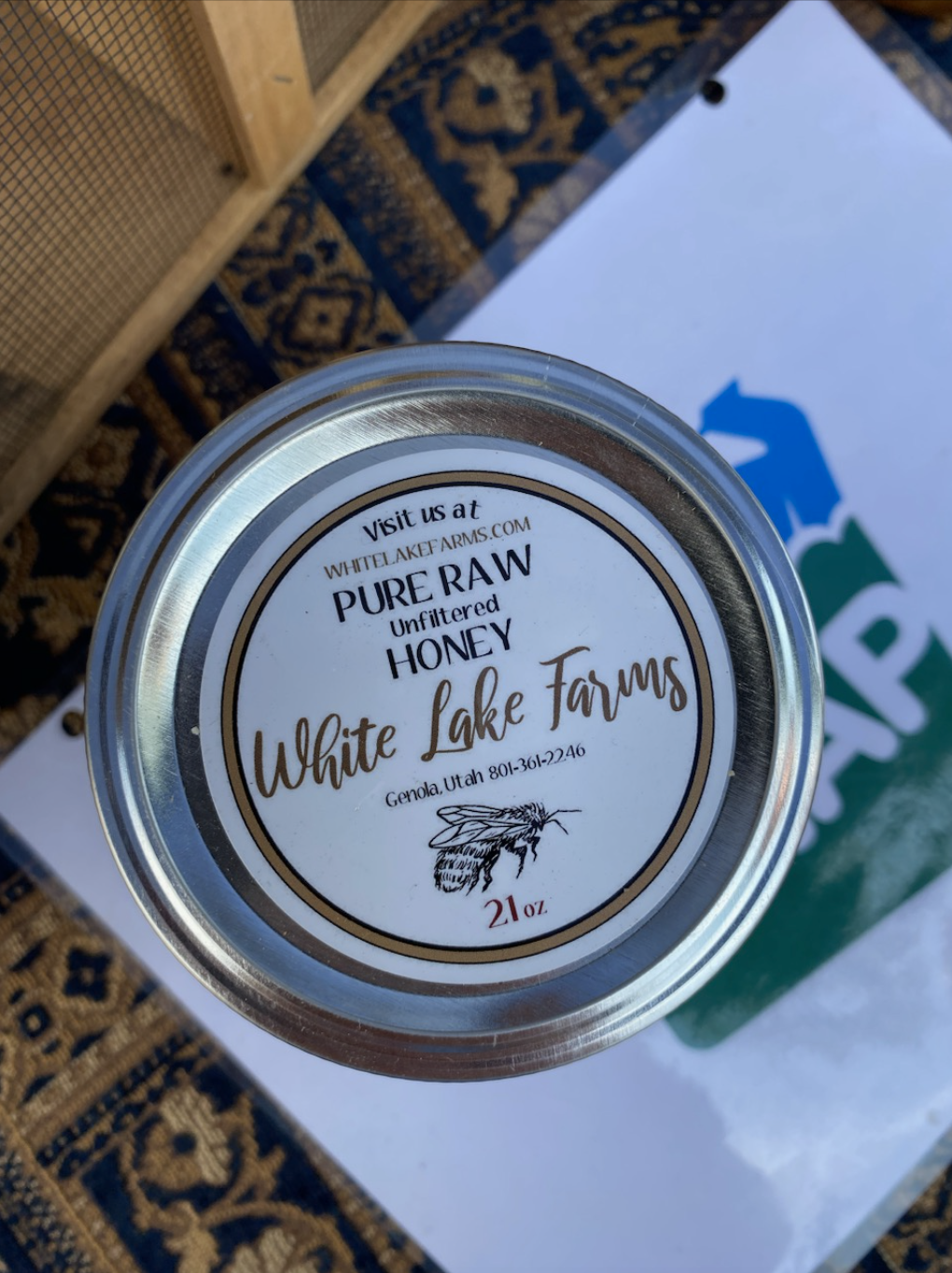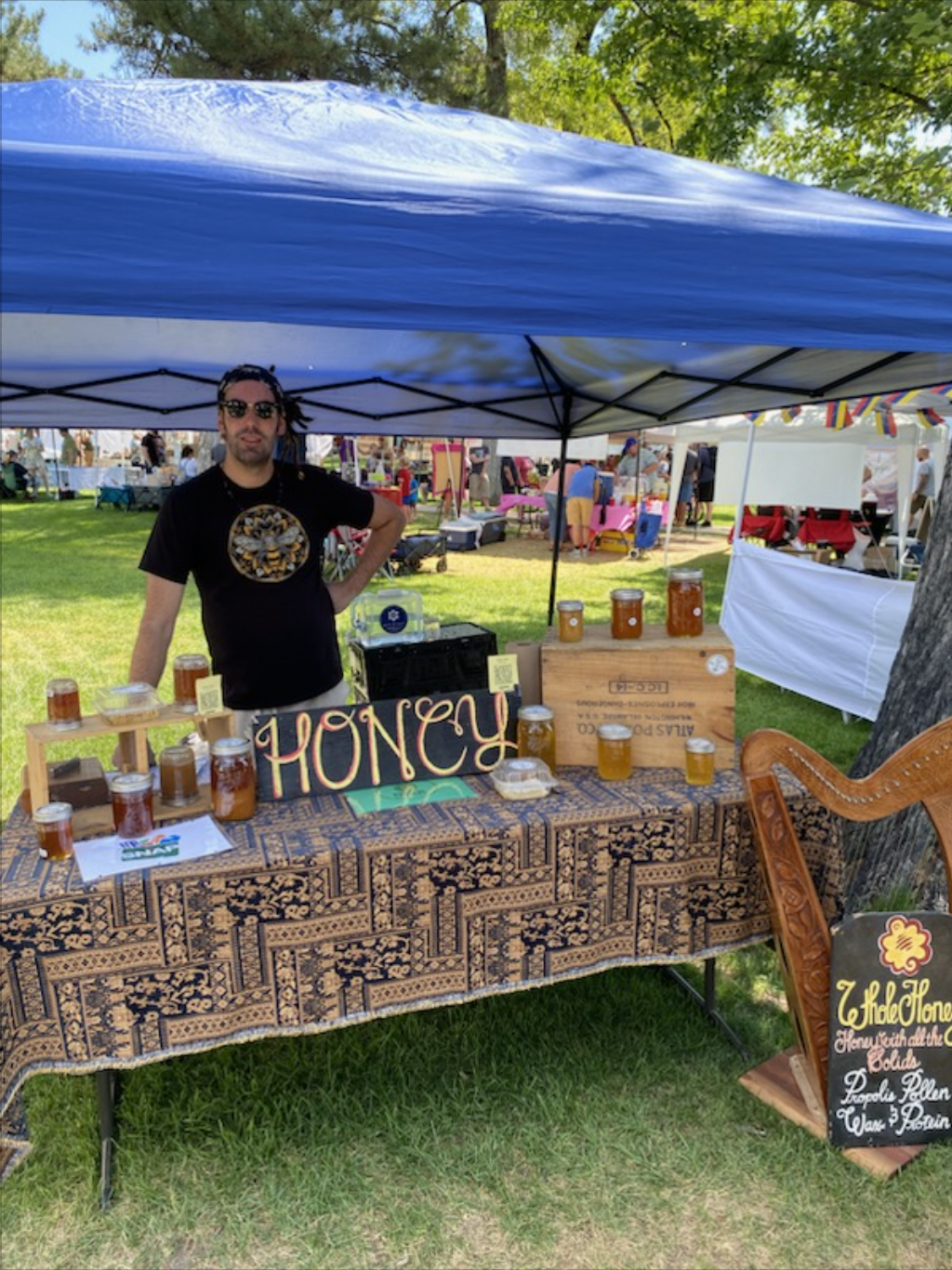
Purchasing raw, unfiltered honey produced by local hives provides numerous health benefits to consumers, and can even strengthen immune systems against allergies caused by pollen, local honey experts say.
American Fork resident Matt Clonts owns an online shop called Hivegrown, selling honey products. He started keeping bees in his backyard three years ago when a friend recommended he take up the hobby.
“I bought some bees one day and I just started doing it,” Clonts said.
Clonts bought bees from another beekeeper to start his hive, but most of the bees he owns now he collected from the wild through swarming. Swarming, according to Clonts, involves taking a swarm of bees from a tree or other place in the wild and transporting them to a box, where they continue maintaining their hive or can build a new one.
Clonts said he keeps his bees in a box full of frames where they can build their wax honeycombs. They then fly around the backyard pollinating and filling the combs with either larva or honey. Clonts said the bees travel as far as a mile from their hive to pollinate.

Bees can sometimes be aggressive, Clonts said, especially those collected from the wild. He always wears a protective suit, although some beekeepers do not.
Soon after he started beekeeping, Clonts realized that he could use honey for more than just food. In addition to selling honey for consumption, he and his wife Sydney use their honey or beeswax as main ingredients to make soaps, lotion bars and chapsticks.
“I always knew honey was good for your skin…so I just thought I could make a good product with it,” he said.
Clonts and his wife sell their products at the Provo Farmers Market and on their website.
“It’s really simple to do, it’s really fun. … It’s a good hobby,” he said.
Studies show honey-related health benefits
“Honey and Health: A Review of Recent Clinical Research,” an article published in the National Library of Medicine, explains that honey is a healthy nutritional supplement and can be used to treat various diseases.
According to the article, honey is one of the “most appreciated and valued natural products that humankind has had access to since ancient times.”
Approximately 300 types of honey are recognized today, with varieties relating to the different kinds of nectar collected by bees.
Beyond nutritional value, honey also has medicinal properties, according to the article.
“Sufficient evidence exists recommending the use of honey in the management of disease conditions. … Studies revealed that the medicinal effect of honey may be due to its antibacterial, anti-inflammatory, apoptotic, and antioxidant properties,” according to the article.
The article lists various disease conditions that honey benefits, including diabetes, cancer, asthma, cardiovascular and gastrointestinal disease. It can even speed up the healing process of flesh wounds.
“The health benefits are endless,” Steven Mountford, director of sales for Whitelake Farms, said.
Whitelake Farms
Whitelake Farms specializes in producing pure, raw honey along the Wasatch Front. With their headquarters in Genola, Utah, they sell their products at local markets, online, to restaurants and at various locations listed on their website.
“Honey is arguably the most unique food we have,” Mountford said. “It’s a taste and smell of a piece of the earth.”
While other foods are isolated to themselves, honey is a combination of many nectars which give it a unique nutrients that no other food has, Mountford explained.
Yann Le Morvan, a sales representative who sells Whitelake Farms honey at the Provo Farmers Market every week, explained that the variety of nectar in honey can affect the taste. A wider variety of pollen and nectar collected by the bees gives the honey more flavor naturally, he said.
Le Morvan said honey can be produced containing the nectar of just one specific plant. He gave the example of lavender honey, in which case the bees collect nectar from lavender exclusively, giving the honey a specific taste.
Le Morvan emphasized the importance of consuming raw, unfiltered honey rather than processed honey.


Raw honey is roughly strained to remove wax and bug parts, he said. However, almost all of the mass-produced honey found in grocery stores has been heavily filtered.
The filtering process often strips the honey of its natural pollen and the bulk of its nutrients. When pollen is removed from honey, all that’s left is sugar, he said.
Store-bought honey is often infused with additional flavors or modified to stay liquid at any temperature, he said, while raw honey naturally solidifies when it’s cool.
Le Morvan explained that consuming raw honey containing local pollen and nectar builds immune systems against allergies caused by that same pollen, similar to a vaccine.
“Basically, you’re adapting your body to what’s coming,” Le Morvan said.
He said that for this reason, Whitelake Farms has over 800 hives spread throughout the county, collecting as many varieties of pollen as possible.
In addition to health benefits, purchasing locally produced honey benefits the community, Mountford said.




